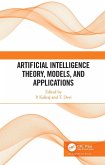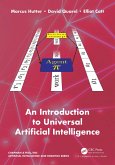The lack of assumed prior knowledge makes this book ideal for any introductory courses in artificial intelligence or intelligent systems design, while the contemporary coverage means more advanced students will benefit by discovering the latest state-of-the-art techniques, particularly in intelligent agents and knowledge discovery.
Dieser Download kann aus rechtlichen Gründen nur mit Rechnungsadresse in A, B, BG, CY, CZ, D, DK, EW, E, FIN, F, GR, HR, H, IRL, I, LT, L, LR, M, NL, PL, P, R, S, SLO, SK ausgeliefert werden.
Hinweis: Dieser Artikel kann nur an eine deutsche Lieferadresse ausgeliefert werden.









